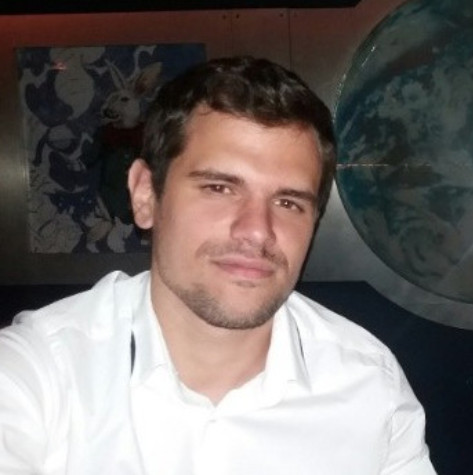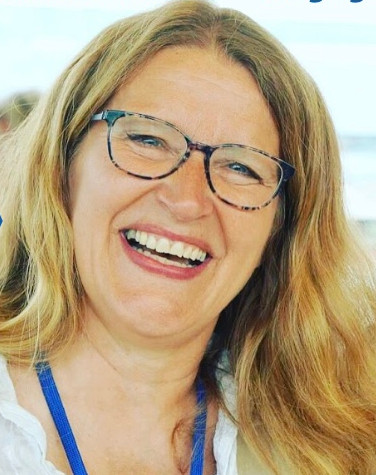Blog / Valantis Tsiakos & Bente Lilja Bye / March 27, 2020


The more you know, the better you are equipped to make good decisions.
At this year’s INSPIRE Hackathon a whole range of open data and information accessible from sources such as GEOSS, Copernicus and others will be applied by citizen science projects to address a series of challenges.
Openly available Earth observations will be applied to multiple challenges ranging from land use to traffic monitoring to agriculture, with a special challenge on filling in the gaps related to ground-based, or in situ, observations through the work of citizen scientists.
Through these challenges, citizen science sourced data is expected to add value to these open sources of Earth observations by enriching in situ databases with more data. Participants will use INSPIRE tools for making their data interoperable, along with standards from the Open Geospatial Consortium (OGC). Participants in the Dubrovnik INSPIRE Hackathon will need to use various data sources to succeed in solving the challenges.
The results from these challenges will contribute to the Group On Earth Observations (GEO) Work Programme, particularly the Citizen Science Community Activity and the NextEOS Community Activity, but will also support the implementation of the GEO Data Sharing Principles and Data Management Principles.
This year’s all-remote hackathon is about to start. The annual INSPIRE conference was meant to be held in Dubrovnik, Croatia and is therefore lending its name to this year’s main INSPIRE hackathon, but the entire event will be held remotely.
The in-person webinars are an important component of the INSPIRE Hackathons. As part of the activities in each of the challenges, there will be a webinar organised where participants and others (webinars are open to all!) can learn about the technologies and gain deeper knowledge about the topics.
The first webinar is March 30, 2020 and the series will be ongoing until 13th May 2020, concluding in a final online workshop. Participants are encouraged to join before Monday 30 March 2020, but can join the INSPIRE Hackathon at any time during the event.
Read more about the other challenges that the Dubrovnik INSPIRE hackathon offers here.
Discover some of the challenges below:


Integrating INSPIRE with Citizen Science and Earth Observation authentication systems
The scope of the challenge is to enhance your geospatial and/or INSPIRE enabled web-based or mobile application to connect to either Citizen Science and/or Earth observation data. More specifically, the challenge will focus on improving accessibility to protected resources while also enabling their direct consumption and utilisation by third party applications.
A link to a longer description and the registration is here.
Mentors: Andreas Matheus from Secure Dimensions GmbH and Hector Rodriguez from DEIMOS-Space.


Establish the connection of Citizen Observatories resources with central catalogue
The goal of the challenge is to enable the integration of the 4 H2020 Citizen Observatories datasets with the NextGEOSS catalogue as an approach to connect citizen science into GEOSS.
A link to a longer description and the registration is here.
Mentors: Koushik Panda and Joao Andrade from DEIMOS, Valantis Tsiakos from ICCS, Georiana Beres and Lea Manoussakis from Datopian


Improve interoperability between methods for sharing in situ and citizen-sourced data
The goal of the challenge is to make available H2020 Citizen Observatories datasets using the OGC SensorThings Application Programming Interface (API) and develop and test tools to provide combined visualization of data coming from different sources. This involves also sharing of environmental measurements coming from different Internet of Things (IoT) devices and in situ monitoring networks, aiming to establish combined use of data and services among different platforms towards improved environmental monitoring.
A link to a longer description and the registration is here.
Mentor: Valantis Tsiakos from ICCS, Joan Maso from CREAF, Michal Kepka from


Using Artificial Intelligence (AI) for detection of Land Use objects
The goal is to select an algorithm which will help to detect an object from Satellite data (Sentinel 2 or Landsat). The main focus will be on support field boundaries detection. Missing field boundaries information is a big limitation for precision farming services. The focus will be on the selection of algorithms and training these algorithms. Data will be eventually used as input for Open Land Use.
A link to a longer description and the registration is here.
Mentor: Hana Kubickova, Plan4All
We hope you can join us. Follow @allplan4 on Twitter or any of the supporting H2020 projects (see image above) or visit the website for more information.
About the authors

Valantis Tsiakos is working as a Scientific Project Manager, member of the Smart Integrated Systems & Communication Team of the I-SENSE group of ICCS. His studies focus on Urban Planning & Regional Development from University of Thessaly and a MSc in Geoinformatics from Harokopio University of Athens. He has been involved in various EU funded projects, emphasizing on the application of information systems in the environmental sector. His scientific interests include: spatial data infrastructures, remote sensing, standardization, environmental applications, citizen science and crowdsourcing.

Bente Lilja Bye has been a member of the GEO community since 2004, engaged both as representative in the GEO plenary, in committees and contributing to the GEO Work Programme, and currently represents Norway on the GEO Programme Board. Bente runs a small research and consultancy company, BLB, focusing on transforming Earth observation data to information and knowledge for societal benefit. She is responsible for Communication, Dissemination and Assessment as partner in NextGEOSS. *NextGEOSS is a H2020 project funded by the European Commission under GA 730329.
Thank you for your subscription to the GEO Week 2019 mailing list.